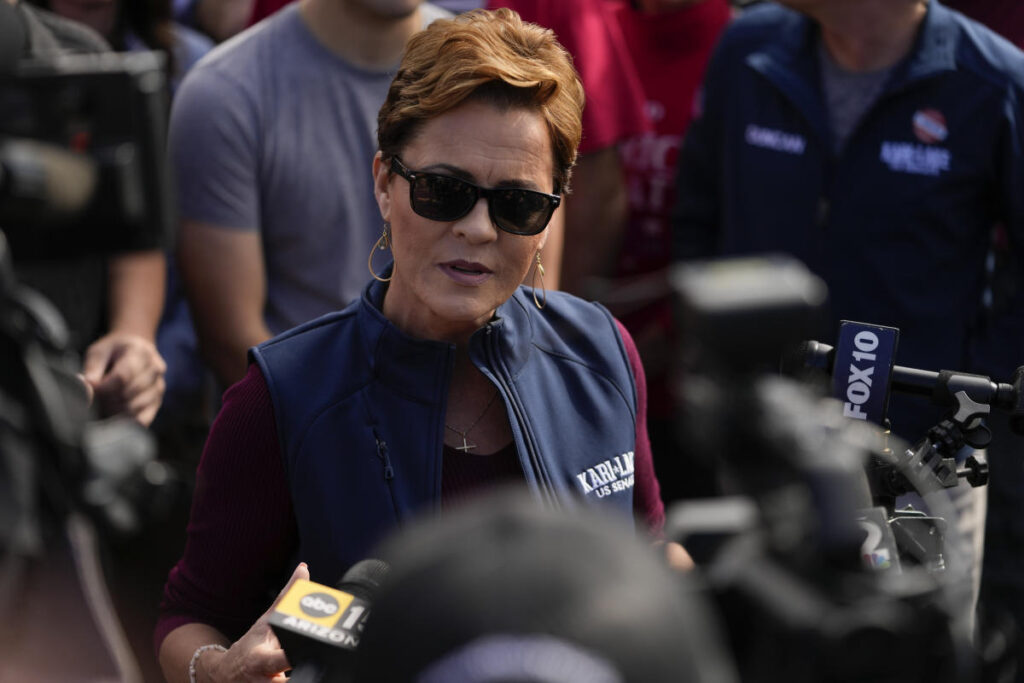The Arizona Supreme Court has decided not to hear Republican Kari Lake’s latest appeal regarding her loss in the 2022 governor’s race, a decision announced publicly without further explanation. This marks another setback for Lake in her efforts to contest the results of the election, where she was defeated by Democrat Katie Hobbs by more than 17,000 votes. In her pursuit to overturn the election outcome, Lake has faced significant legal challenges, having pursued three trials that yielded no favorable results. This ruling further solidifies the legitimacy of Hobbs’s victory and Lake’s diminishing chances of successfully challenging the election results.
Lake’s claims centered around alleged misconduct related to ballot printers at certain Maricopa County polling places on Election Day, suggesting that these issues could have influenced the election outcome. Additionally, Lake alleged that Maricopa County failed to properly verify mail-in ballot signatures, violating legal requirements. Despite her assertions, judges dismissed her arguments as lacking merit, which included a denial of her request to scrutinize the ballot envelopes from 1.3 million early voters. The courts have consistently ruled against Lake, emphasizing the absence of evidence to support her allegations of fraud or misconduct.
In her latest plea, Lake sought a review from the Arizona Supreme Court, asserting that she possessed new evidence to bolster her claims. However, legal representatives for Maricopa County countered her assertions, stating that Lake did not present any new information that would alter previous court findings. This stark contrast between the claims made by Lake and the response from Maricopa County attorneys highlights the ongoing legal battles that have characterized Lake’s post-election efforts. Ultimately, the Supreme Court’s refusal to hear her case reiterates the court’s prior decisions, underscoring the reality that her claims have not found validation within the judicial system.
Lake’s persistent refusal to concede the election is particularly notable in a political landscape where many defeated candidates have chosen to accept electoral outcomes. She has emerged as a prominent figure among Republican candidates who have propagated the false narrative of widespread election fraud during the 2020 Presidential election, claiming that Donald Trump was the rightful winner over President Joe Biden. This rhetoric has become a central theme of her political identity and campaign strategy, despite the fact that most other election deniers have acknowledged their defeats in various elections across the country.
As Lake transitions from her gubernatorial campaign to a current challenge for a U.S. Senate seat against Democrat Ruben Gallego, her determination to contest the governor’s race results remains a defining aspect of her political narrative. While Lake has sought to maintain her visibility and relevance in Arizona politics, her ongoing legal struggles have overshadowed her new Senate campaign. Her unwillingness to back down from her claims about the 2022 governor’s race places her in a unique position among her peers, eliciting both criticism and support from various factions within the Republican party.
In conclusion, Kari Lake’s unsuccessful appeal to the Arizona Supreme Court serves as the latest chapter in her broader campaign narrative marked by claims of electoral fraud and misconduct. With the courts having repeatedly ruled against her claims and affirmed Hobbs’s victory, the path forward for Lake becomes increasingly complicated as she now focuses her efforts on a Senate race. Her ability to maintain a strong political presence amid these legal challenges will be closely monitored, as her future in Arizona politics hangs in the balance of both public support and the outcomes of her ongoing political endeavors.

